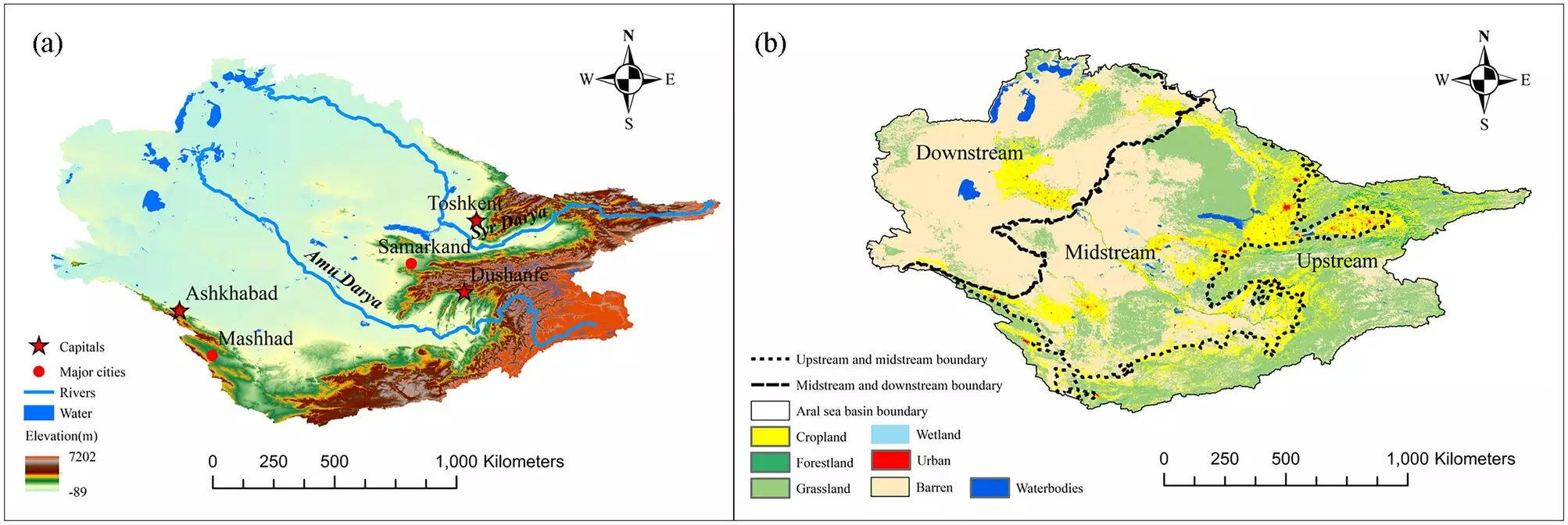The Aral Sea, located in Central Asia, has been significantly impacted by both climate change and human activities. Due to these factors, the surface area of the Aral Sea has been steadily decreasing, leading to what can only be described as a regional ecological crisis. The reduction in size of the Aral Sea has had a profound impact on various ecosystem services in the region, affecting water production, soil conservation, carbon storage, and habitat quality.
Research Findings
A recent study published in Scientific Reports by Prof. Yu Ruide and his team from the Xinjiang Institute of Ecology and Geography of the Chinese Academy of Sciences delved into the spatiotemporal changes of these key ecosystem services in the Aral Sea basin. The researchers utilized models such as the Future Land Use Simulation Model (FLUS) and Integrated Valuation of Ecosystem Services and Trade-offs (InVEST) to analyze land use dynamics and ecosystem service provision under different scenarios.
From 1995 to 2020, the study found alarming changes in land use within the Aral Sea basin. The water area decreased by 49.59%, while urban areas expanded rapidly by 504.65%. Additionally, there was a continuous decline in cropland, forestland, and grassland, with an increase in bare land and urban areas. This shift highlights the growing conflict between the agricultural sector and urban development in the region.
Looking ahead to the future (2021–2100), the researchers projected a significant loss of ecosystem services across the Aral Sea basin under the SSP245 scenario, which represents an agricultural degradation scenario. The projections also indicate changing relationships between habitat quality, soil conservation, and water quantity, with some strengthening and others weakening. This highlights the complex interplay between different ecosystem services within the region.
Call for Action
Prof. Yu Yang, the corresponding author of the study, emphasizes the importance of carefully designing restoration plans for the Aral Sea region due to the existing synergies and tradeoffs between different ecosystem services. This research not only sheds light on the dynamic changes occurring in the Aral Sea basin but also serves as a valuable reference for crafting effective land management plans that prioritize ecosystem services. The preservation and restoration of these services are vital for the long-term sustainability and health of the Aral Sea basin.


Leave a Reply